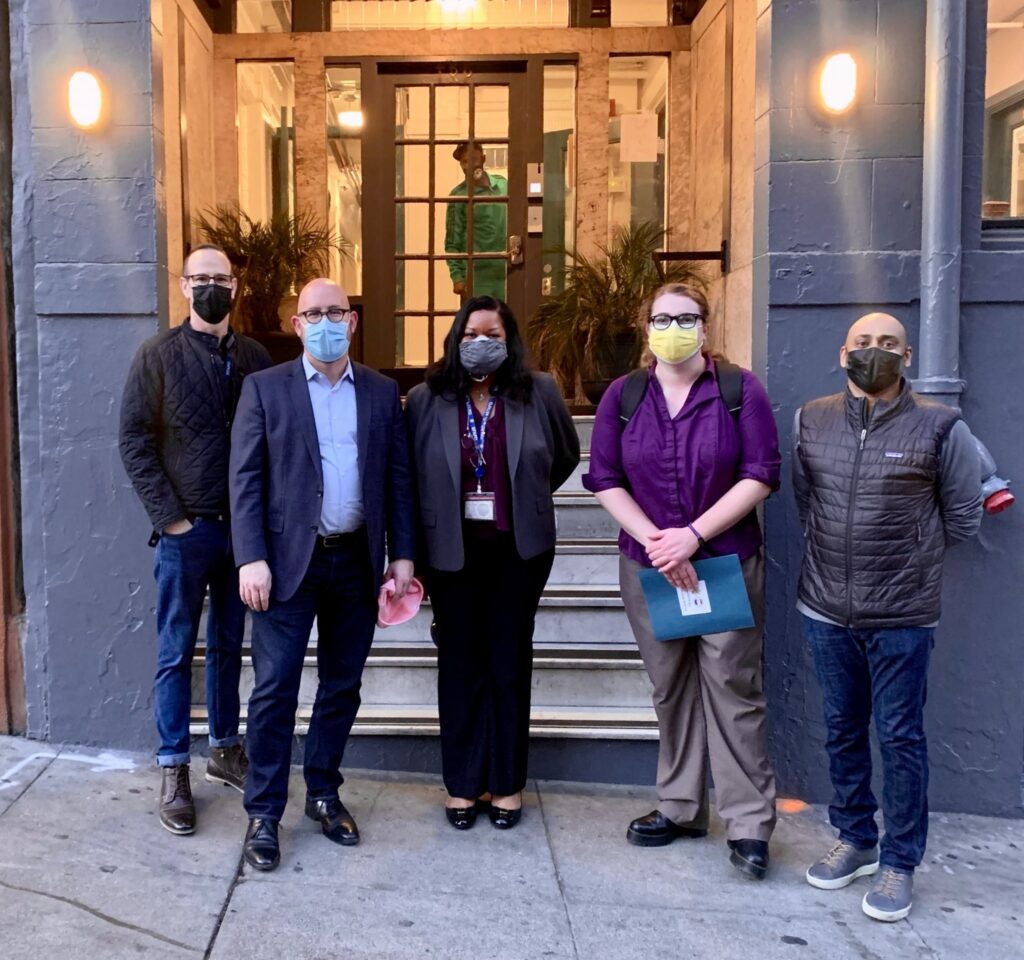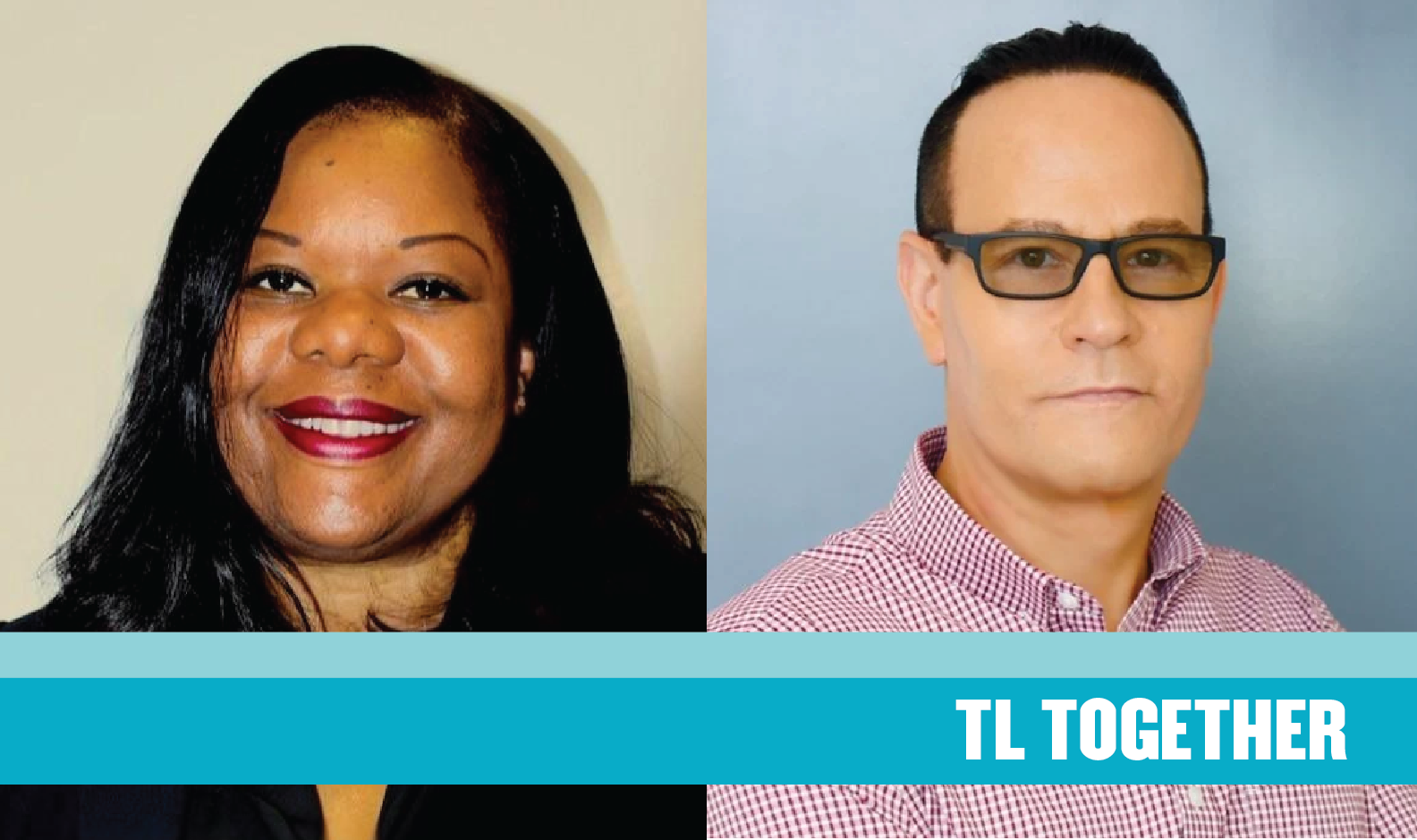Meet Cristel Tullock and Steve Adami. In January, Cristel was appointed Chief of San Francisco’s Adult Probation Department (APD), and has worked with the department for over 20 years. Chief Tullock is APD’s first African American Chief, began her career as a Deputy Probation Officer, and has worked her way up through various management roles. She has a Master’s Degree in Social Work, received clinical training at Kaiser, and has served in numerous advisory roles throughout her career. Steve is Director of APD’s Reentry Division. In this role he supervises operations of San Francisco’s Reentry Council and Community Corrections Partnership, and oversees a portfolio of reentry and rehabilitative programs designed to support the needs of justice involved adults. He began his career with APD in 2014 and has served in various leadership roles.
Cristel and Steve work with individuals, many of whom have suffered from early trauma or mental health challenges, and connect them with programs and services funded by APD. These services include, mental health services, clinical and reentry case management, transitional housing, drug treatment, and employment services. These services are all designed to help their clients live healthier, more functional lives. Much like the response we’re seeing here in the Tenderloin, the APD and its Reentry Division are focused on second chances, and giving people the opportunity to overcome their unique challenges.
Read on to learn about their backgrounds, and their work with people in the neighborhood and the city.
What is your background, and how did you get started in your work?
Cristel: I was a former high school dropout, but someone in my neighborhood stayed on me to get my life back on track, and I wanted to be able to be that presence in someone else’s life. I ended up going back to school and getting a bachelor’s degree in criminology and corrections, as well as a master’s degree in social work.
I had a friend in high school who was on probation and I was frustrated by their experience with their probation officer, because there seemed to be a lack of genuine engagement. With that memory in mind, I committed myself to bringing compassion to probation, and involving people in the process who have similar histories to our client population.

Cristel and Steve leading a tour of one of the Adult Probation Department’s transitional housing sites.
Steve: I spent over 20 years in and out of jails and prison and using drugs. When I was released from prison in 2010, my only goals were to not be homeless and to stay clean and sober. While I was on parole, I went back to school and got a Master’s Degree in Public Administration (Public Policy/Criminal Justice). In 2014 I was hired by the San Francisco Adult Probation Department as Reentry Services Coordinator, promoted to management in 2017, and in 2021 I became the Director of the Reentry Division. I’ve been clean and sober for 14 years and remain committed to helping other formerly incarcerated individuals reclaim their place in the community.
Can you tell us more about probation and the reentry program?
Steve: Instead of going to prison, probation is an alternative. Our core strategy is the Community Assessment and Services Center (CASC), a behavioral health focused, clinical reentry. The CASC provides wrap-around case management services to over 300 vulnerable justice involved adults. Over the past seven years APD’s Reentry Division has been recognized as a national model designing and implementing reentry programs that can be accessed in real-time. To further support our clients, we have worked closely with our community partners and fund 15 transitional housing programs providing a clean and sober supportive environment to 350 justice involved adults each night. These programs, some which are in the Tenderloin, ensure that our clients have the support and safety they need to rebuild their lives. We recently implemented two quite impactful programs. In September 2021, we opened the Positive Directions TRP Academy, a culturally responsive, peer-led, abstinence-based, reentry therapeutic teaching community (TTC) and transitional housing program. In January 2022 we opened the door to the Billie Holiday Center, a Reentry Navigation Center, a transitional living space designed to provide a rapid connection to next-step resources to justice-involved adults experiencing homelessness, mental health challenges, those struggling with addiction, as well as people being released from the San Francisco County Jail.
Cristel: Probation is an opportunity for individuals to remain in the community, and we work with those on probation and guide them to help realign their lives. It’s common for clients on probation to get lost in the shuffle, and we make a point to really sit with people, to talk about their lives and how they ended up where they are, and get a better understanding of what they need. Members of our staff, like Steve, have similar histories to the clients we serve, which allows us to make sure that our strategies are meaningful, and we are reaching people in the most effective ways.
What is your philosophy when it comes to probation and helping people with reentry?
Cristel: At the heart of it, our job is so much more than sitting behind a desk, and I see this position as an opportunity to do for others what someone did for me. I believe in law enforcement, but I believe so much more in people and change, and we are the balance. We balance social justice, social work and law enforcement, and you need all of those to help people get better. Our primary focus is helping individuals to stabilize their lives, and in turn create a safer community.
Steve: We’re not like your parents’ probation department. No one here is interested in locking up someone struggling with addiction, we want to mitigate behaviors that come from addiction, and give people a second chance. We believe in harm reduction and abstinence-based strategies to get people on the right track. The people struggling with addiction are often brilliant people, they just need an opportunity to live differently, and when you help someone get clean, the opportunities for them are endless.


Comments are closed.